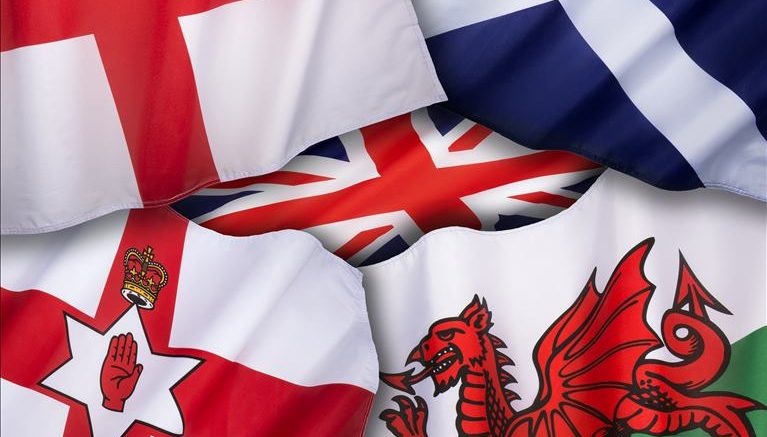Britain is being humiliated internationally because of Brexit – and there might be worse to come. There is now a clear possibility that Britain as we know it will cease to exist. Murray Ritchie asks: Is getting out of the European Union really worth it?
If only David Cameron had had the courage when he was prime minister to say ‘No’ to the incessant Europhobic campaigning of his party dissidents on the question of an EU referendum this present mess might never have happened.
Rather pathetically he still says he was right to honour a promise to hold the referendum because it would settle the European debate across the United Kingdom. That is bunkum. There was no such debate. Everyone and their auntie knows full well he stupidly called it to remove a running sore of four decades’ standing almost exclusively in the Tory party.
After winning (narrowly) the Scottish independence referendum he thought he could push his luck and go for the double with the EU. Big mistake.
The British people as a whole were showing no urgent demand for a vote. But just enough of them (mainly in England outside London) were misled, hoodwinked and lied to by press and politicians with sufficient vigour to spook them into the catastrophic decision which has left the world staring in wonder at how a once great nation has so spectacularly lost its political equilibrium, not to mention its dignity.
This loss of respect cannot easily be regained and all the signs now are that Britain is about to be changed or even broken by Brexit in a way which few predicted.
Who would have thought that in Wales – that docile appendage of England – with traditionally only a tiny nationalistic element and a small majority for Brexit, would now be talking seriously of independence?
A recent finding from respected pollsters suggested more than 40 per cent of Welsh voters would favour independence post-Brexit if Wales could remain in the European Union. Three years ago such a finding would have been unthinkable.
There is a stark message from that Welsh sea change. When Scotland was asked five years ago if it wanted independence the so-called “separatist” campaign launched with a polling percentage in the high 20s. It finished on 45 per cent. If the Welsh were to launch an independence referendum with 40 per cent for starters where might support peak?
In Scotland there are now polls showing rising majority support for an early second independence referendum and a slight majority for independence in Europe.
Given the experience of the 2014 campaign a starting point of more than 50 per cent can only be encouraging for Scotland’s independistas.
Brexit is a sore point in Scotland – favoured only by one third of voters in 2016 and that figure is now dwindling – and is plainly serving to fuel the independence in Europe campaign.
Recent pronunciations from the EU have made clear Scotland would be a welcome member state with a less than troubled accession process. The Spanish have gone mute.
And then there is Northern Ireland with its tortured history of violent, polarised politics. Astonishingly, Brexit appears to be something of a healing process in that land.
Polls there suggest a surge – even a small majority – now for Irish reunification if Brexit damages the fragile peace. As with Wales, the unthinkable is now in play.
Northern Ireland’s republican/Catholic community is gradually becoming the majority. Unionists, never noted for their party solidarity, are beginning to see their die-in-the-ditch no-surrender attitudes soften somewhat.
A united Ireland is no longer simply a pipe dream. Both the Republic and Northern Ireland, being pro-EU, are desperate for continued cross-border co-operation. Brexit’s potential to destroy peace and prosperity appears, ironically, to be the bandage that could heal old wounds.
In recent times so much else has changed.
Five years ago Scottish independence supporters faced a full-on British propaganda assault. They were told/advised by luminaries such as Barack Obama to vote No. Hillary Clinton said she would hate to see Britain “lose Scotland” and even the Pope was conscripted to warn against “division”.
Ultimately the Queen was drafted to douse nationalist aspirations with her timely “think very carefully” advice to a “tourist” who conveniently materialised for a chat with her outside Balmoral.
The Queen’s fury at David Cameron for making his request for her help public – to sell a book – is now common knowledge. Her Majesty is said to be in a funk, perhaps not least because she was caught. Convention does now allow the monarch to make public her support at the request of a prime minister on a nakedly political issue.
The lesson? Don’t do it again next time.
All the signs now are that Britain is about to be changed or even broken by Brexit in a way which few predicted.
Then there is the role of the EU in this threatened disintegration of the British construct. That, too, is transformed by Brexit.
The EU gave Scottish independence the cold shoulder last time, mainly because any warm words of support would have upset the Spanish with their Catalan and Basque problems.
No longer. Recent pronunciations from the EU have made clear Scotland would be a welcome member state with a less than troubled accession process. The Spanish have gone mute.
Before Brexit the independence argument in Scotland and Wales was primarily a party political affair – the Scottish National Party and Greens versus the various UK Unionist parties.
Now independence is no longer the preserve of the SNP and Greens and assorted socialists. It has become a passionate movement – a very different beast that will take some stopping.
Almost half of Labour voters are content with independence, the polls tell us. The fierce opposition of Labour and LibDem leaders to independence does not convince many of their rank and file members and voters.
The stars are no longer aligned for the old UK. You know there is trouble when three of its four nations are prompted by Brexit to consider going their own way in the post-Brexit age.
When even Northern Ireland’s people start to ponder putting the EU before the UK – despite the Democratic Unionists – you know the trouble is deepening for the imploding Conservative Party’s “precious Union”.
And all because four decades of division in the Conservative Party led a prime minister to put his party before the country, even if he can’t bring himself to admit it.

Featured Image Credit: Steve Allen/Shutterstock.com




